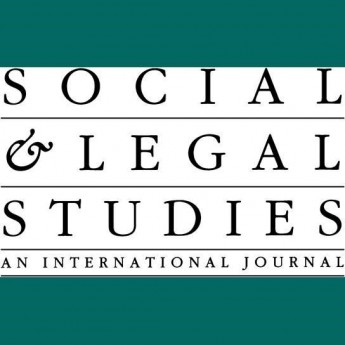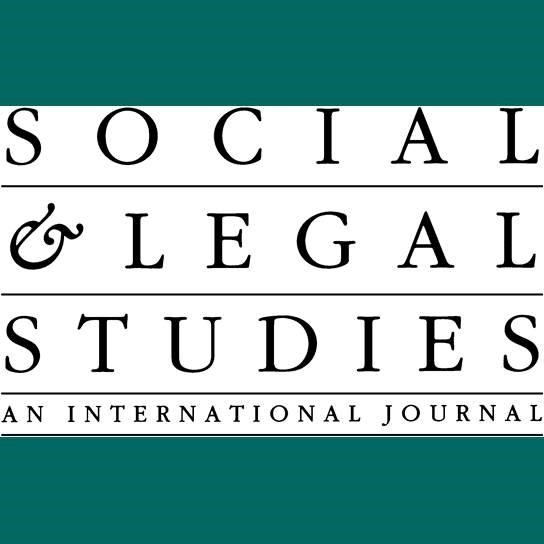Kieran McEvoy
Professor, School of Law, Queen’s University Belfast
Anna Bryson
Senior Lecturer, School of Law, Queen’s University Belfast
Transitional justice has in the course of the last two to three decades acquired all of the accoutrements of a ‘respectable’ field of inquiry. Originally viewed by many as an ‘add-on’ to the political science literature on transitions from authoritarianism or conflict to democracy, it now attracts serious scholarly attention right across the social sciences, arts and humanities. That ‘respectabilisation’ has coincided with Social and Legal Studies becoming one of the ‘go to’ places for socio-legal facing research in this area.
The rationale for putting this special issue together is to showcase the strength and diversity of transitional justice-related scholarship published in the journal, to underscore the relevance of the field to a more generalist audience of socio-legal scholars, and to offer tentative pointers for future research. All of the articles chosen engage with the role of law in the theory and practice of transitional justice. Moreover they do so from an avowedly interdisciplinary perspective.
The first article included in this edition (by Christine Bell, Colm Campbell and Fionnuala Ní Aoláin) focuses on ‘justice discourses in transition’. Using Northern Ireland as a primary case-study, they argue that the contests over the meaning and effect of transitional justice are increasingly shaped by the prominence of human rights and humanitarian law. They address some key limitations of law for societies emerging from violence and human rights abuses, including the lack of consensus on whether law was a force for good or ill and the ways in which states which have been complicit in human rights abuses use law and legalism as a way of disguising their role as an active participant in the conflict.
Lars Waldorf examines the historic neglect of economic and social rights in transitional justice. He argues that if underlying structural issues of poverty, social exclusion and discrimination are not addressed, guarantees of ‘non-recurrence’ with regard to either a return to violence or the re-emergence of authoritarianism risk being hollowed out. Warldorf suggests that transitional justice mechanisms such as truth commissions must do more than simply address socio-economic issues as ‘historical background material’. Rather they must be built into the architecture, as well as devising reparative programmes which are designed to address such past structural wrongs.
Claire Moon discusses reparations using Argentina’s iconic Madres de Plaza de Mayo. Moon argues that reparations can serve to placate and obfuscate demands for justice and accountability, as well as to regulate and control the narratives associated with past crimes and abuses. She explores what she regards as the false binary between ‘material’ and ‘symbolic’ reparations more generally, arguing that material reparations can be a form of forced forgetting and instrument of social control. The Madres refusal of reparations in Argentina transformed the meaning of victimhood, grief and social suffering by converting them into public action, resisting pressure to forgive and efforts to consign horror to historic memory.
Kirsten Campbell explores the role the International Criminal Tribunal for Yugoslavia (ICTY) archive might play in shaping collective memory in the Balkans. Campbell questions the way in which legal rules, institutions and practices work to form the archive of legal memories. She argues that the legal archive is an effort to leave behind an objective history of the conflict, a buttress against denial and the rewriting of history, and inevitably produces a more complex array of legal memories. She proposes an alternative concept of ‘memorial law’ in order to suggest that memorial practices are themselves constitutive of legal and in particular collective legal memory.
Emilios Christodoulidis highlights the tensions between the truth seeking elements of the South African Truth and Reconciliation Commission (SATRC) and amnesties to showcase the challenges of law as a tool of reconciliation. He describes the public confessional aspects of the SATRC as a failure which ultimately undermined the legal functions of the body. Additionally, he argues that mercy, in the shape of amnesties for perpetrators, was inevitably understood as an injustice by victims seeking truth and accountability. Having problematised understandings of reconciliation, he concludes that law was deployed in a risky and experimental fashion in the SATRC and that it should not seek to either rewrite history or shape collective memories.
Finally, Kieran McEvoy and Kirsten McConnachie explore the ways in which victim voice and agency is realised, impeded and in some cases co-opted in different transitional justice settings. They address the challenges of victim advocates ‘speaking on behalf of others’, the risks of political manipulation of victim claims-making, and the fact that victim organisations themselves can also be sites of exclusionary and political hubris. McEvoy and McConnachie examine the importance of blame and consider the ways in which notions of ‘deserving’ and ‘undeserving’ victims encourage victim hierarchies, obscuring the realities of complex victimhood, the creation of ‘false innocents’ and the scapegoating of the ‘other’ in conflicted societies.
Overall, this special issue speaks to the significant contribution that Social and Legal Studies has made as an outlet for transitional justice scholarship. The journal’s openness to interdisciplinary scholarship operates as a buffer against disciplinary ghettoization. It also underlines the fact that transitional justice is now mainstream socio-legal research. To paraphrase Giorgio Agamben, there is less difference between the ‘exceptional contexts’ which have been the traditional focus of transitional justice and the ‘states of exception’ within many settled democracies with emergency laws, extrajudicial violence and other repressive strategies becoming an increasingly normalised feature of the legal landscape. Social and Legal Studies is the place to explore precisely that intersection.
The Virtual Special Issue is available here: http://journals.sagepub.com/page/sls/collections/transitionaljustice FREE TO ACCESS UNTIL 21ST NOVEMBER 2018.

